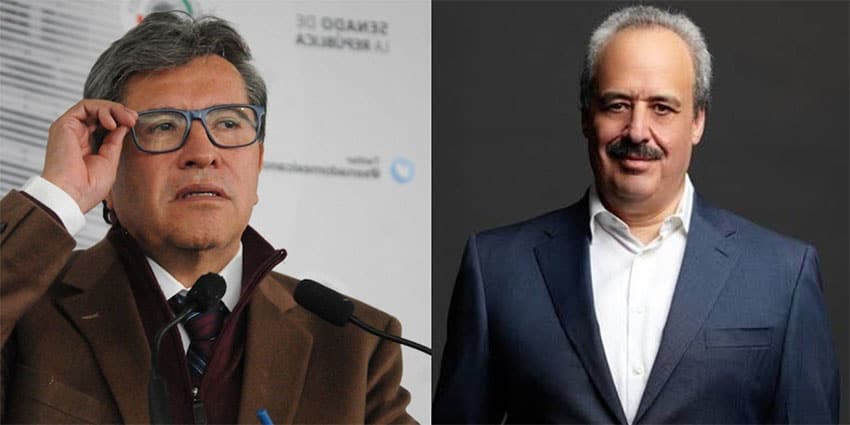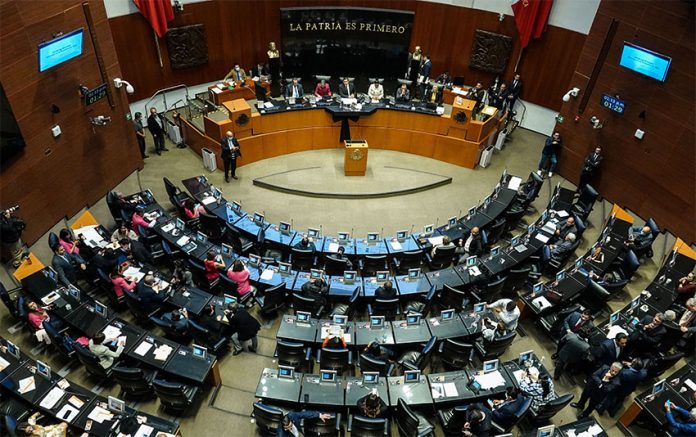The Senate approved President López Obrador’s controversial “Plan B” electoral reform last week with 69 votes in favor and 52 against. The reform contemplates electoral changes through modifications to secondary legislation. It was then sent to the Chamber of Deputies to discuss the Senate’s changes, where there were 269 votes in favor of the initiative and 217 against.
The Senate must next again review the changes made in the lower house. The next legislative session isn’t until February, but some Morena legislators are gathering votes in an attempt to convene a special session before New Years.
The lower house first approved the reform on Dec. 6 through a fast-track decree.
During the course of the Senate session, which extended for more than 20 hours, the opposition parties registered 1,244 reservations, nearly all of which were rejected.
President López Obrador initially proposed a constitutional electoral reform. However, the president’s party, Morena, could not gain the opposition support necessary for its passage. Constitutional reforms require an absolute two-thirds majority. Because the “Plan B” reform was made through secondary legislation, it only required a simple majority, which Morena could achieve with its allies, the Green Party (PVEM) and Labor Party (PT).
Senators from the National Action Party (PAN), the Institutional Revolutionary Party (PRI), the Democratic Revolution Party (PRD) and the Citizen Movement (MC) voted against the reform.
While most Senators from Morena, the PVEM and the PT approved of the initiative, Morena Senator Ricardo Monreal voted against it on the grounds that it was unconstitutional. His close ally of the same party, Rafael Espino, also voted against it.
“Taking into account the doctrine, the jurisprudence, the general principles of law, I affirm and maintain that some of the norms that could be approved tonight stray from constitutional principles,” Monreal said.
The reform has been controversial since its inception, with critics arguing that the initiative will damage Mexico’s democracy and put free and fair elections at risk.

While the “Plan B” reform is not considered as aggressive as the constitutional reform would have been, it still contemplates significant changes to Mexico’s electoral system, including reducing the National Electoral Institute (INE)’s budget, eliminating the Preliminary Electoral Results Program (PREP), and reducing the INE’s district offices from 300 to 264.
At the same time, the parties will be obligated to represent diverse groups in their candidates, such as Indigneous people, Afro-Mexicans, members of the LGBTQ community, young people and people with disabilities. For the first time, Mexicans living abroad will be able to vote in electoral processes electronically.
Ahead of the vote, the 11 INE commissioners issued a joint statement expressing their concern about the reform. In the declaration, they warned of the impacts the reform could have on Mexico’s ability to carry out free and fair elections.
“The approval of a possible reform to the electoral laws could profoundly disrupt the electoral system that Mexico has built and perfected for more than three decades,” the statement read.
“Let’s not go back to the time when the government’s political operators were the ones who set up the polls,” INE commissioner José Roberto Ruiz added.
Following the reform’s approval in the Senate and the lower house, INE Director Lorenzo Córdova announced that authority will defend the electoral system through all possible means, including an unconstitutionality claim through the Supreme Court once it is signed into law.
“A hard and arduous battle is going to come in which those of us who are convinced that the electoral system we have built, although imperfect, is a conquest for all, and a tyrannical majority cannot take that away from us,” he said in a message shared through his social networks.
With reports from El Universal, Forbes México, El Economista, Reforma and Latinus
